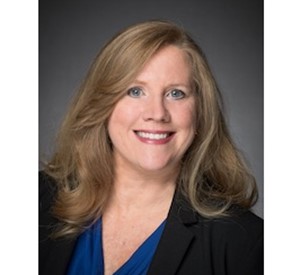Are Federal Courts Turning the Corner on Article III Standing in FDCPA Case
Legal Learning Webinar
This presentation will focus on recent appellate decisions dismissing FDCPA no damage cases where the Plaintiff disclaimed any reliance on purported false statements and also disclaimed any actual damage.
A Plaintiff filing suit in Federal Court must establishing standing under Article III of the Constitution. Standing requires a Plaintiff to have a tangible economic injury or where intangible harm is alleged, the claim must bear in close relationship to a harm recognized as a common law basis of liability.
These bedrock constitutional principles apply when analyzing no damage (statutory) FDCPA claim. Each of the appellate court cases have rejected claims and dismissed suits for lack of standing where there was no claim that a purported misleading communication failed to deceive the debtor.
This presentation will examine the Article III standing principles in the United States Constitution, will examine recent cases dismissing FDCPA lawsuits for lack of standing under either the FDCPA’s prohibition against false, misleading or deceptive statements and/or the FDCPA’s debt’s disclosure requirements.
This session will wrap up with practice pointers in defending FDCPA no damage suit based on defenses of lack of standing.
This webinar is pending CLE approval.
Speakers
Ronald S. Canter, The Law Offices of Ronald S. Canter, LLC
Mr. Canter established The Law Offices of Ronald S. Canter, LLC of Rockville, Maryland in 2008. He is a member of the Bars of Maryland, Pennsylvania, Florida, Virginia and the District of Columbia. He is also admitted to practice in federal courts through the United States, including the Supreme Court and several courts of appeal. Mr. Canter has been engaged in the private practice of law since 1980. He is a recognized authority on creditor’s rights and the regulation of collection practices. He has represented creditors, attorneys and collection agencies in complex litigation including class action defense in both Federal and state courts. Mr. Canter has successfully prosecuted appeals before state and federal courts on a number of significant issues involving the credit and collection industry. He appeared, as counsel of record, for the National Creditors Bar Association (NCBA) in Heintz v. Jenkins, the first Fair Debt Collection Practices case to reach the Supreme Court.
Andrew M. Schwartz, Gordon Rees Scully Mansukhani, LLP
Andrew M. Schwartz is a Partner in the Philadelphia office of Gordon & Rees and is a member of the Commercial Litigation, Professional Liability, and Bankruptcy, Restructuring & Creditors' Rights practice groups. Mr. Schwartz' practice is largely devoted to matters regarding professional liability, concentrating on creditors' rights defense, defamation and privacy issues, business and commercial law, and legal malpractice matters. Mr. Schwartz defends all manner of financial institutions, debt servicers and buyers, auto finance companies, collection attorneys, student lenders, telecommunication providers, mortgage lenders and credit reporting agencies.
CLE Information
National Creditors Bar Association is a national provider of legal educational content. NCBA’s goal is to provide its members with as many opportunities as possible to earn Continuing Legal Education (CLE) credits. Some NCBA webinars state that they are pending approval. If a webinar is pending approval, it means that NCBA’s education staff is awaiting confirmation of approval for CLE credit from the accrediting body of a particular state; it should be noted that individual states have different response and approval rates. NCBA expects that the course will be approved for the credit amount and type listed, but approval is not guaranteed. An attorney can still take the course at their own discretion, though.
It is not uncommon for a course which is pending approval to not be approved until after the webinar has taken place. Once an official decision notice arrives from the state, NCBA will notify attorneys who have completed the course as soon as possible via email, and will re-issue any certificates of completion to reflect the updated state reporting numbers. However, it is recommended that attorneys do not view webinars that are pending approval close to their CLE deadline, as NCBA cannot guarantee that a course will be approved in time.
National Creditors Bar Association will seek MCLE accreditation, with the assistance of the ABA MCLE, for this webinar. NCBA will seek General CLE credit hours in 60-minute-hour states, and in 50-minute states, subject to each state’s approval and credit rounding rules. States typically decide whether a program qualifies for MCLE credit in their jurisdiction 4-8 weeks after the program application is submitted. For many live events, credit approval is not received prior to the program. A link for CLE requests will be provided to webinar attendees who have met the attendance and engagement requirements.
For More Information:

